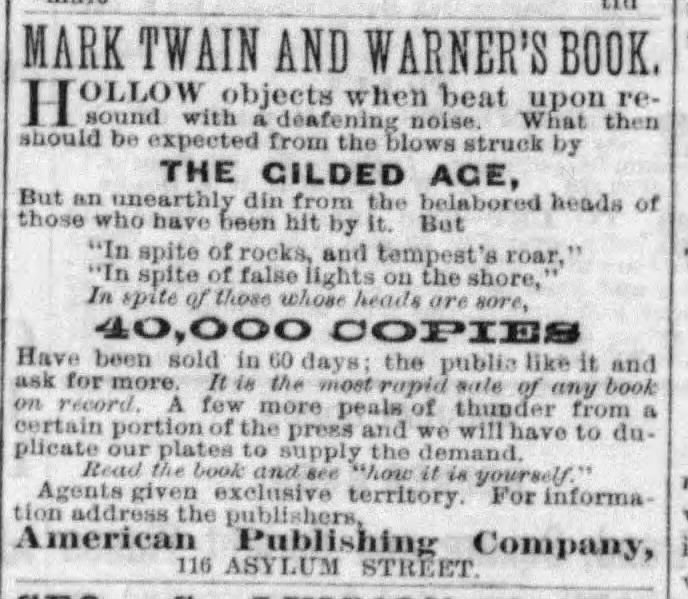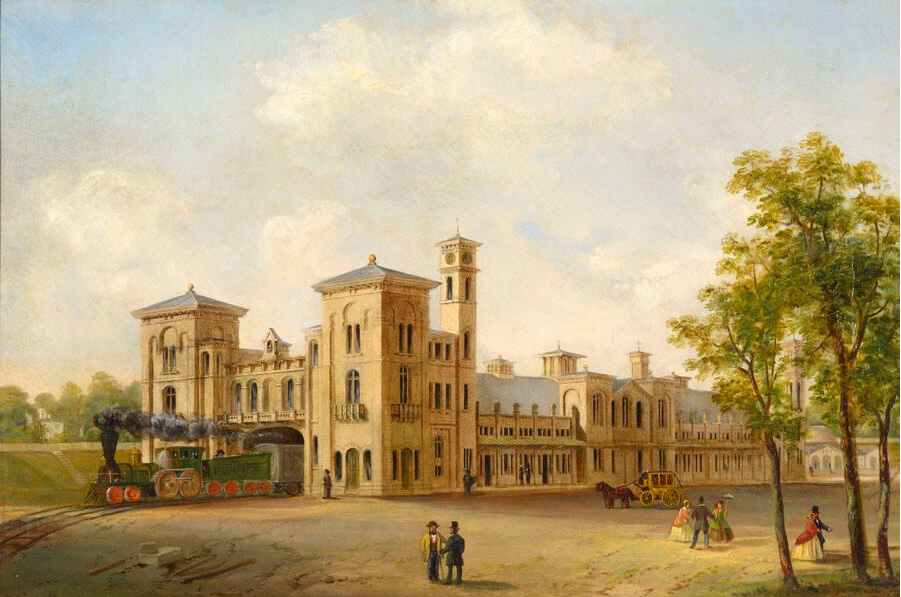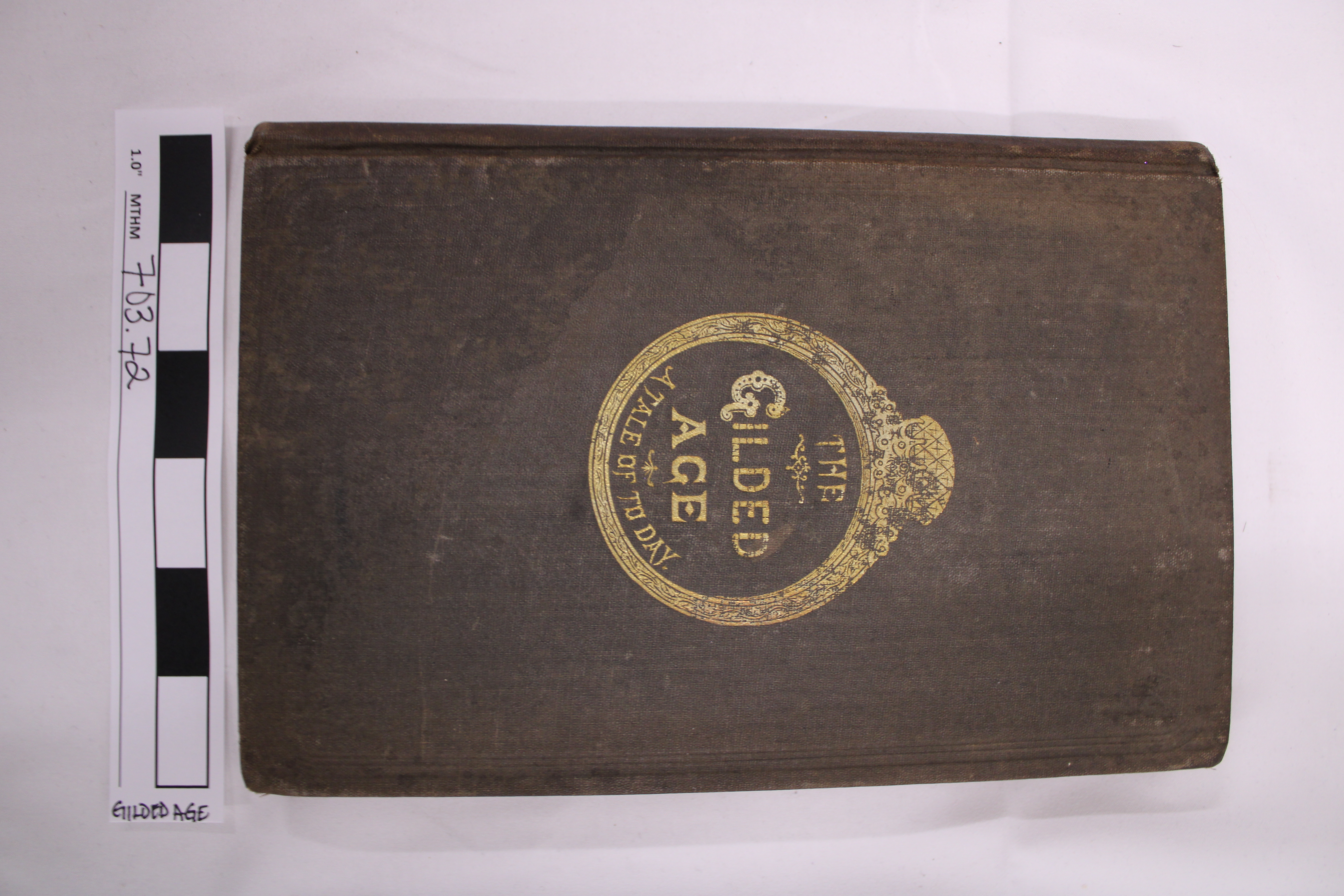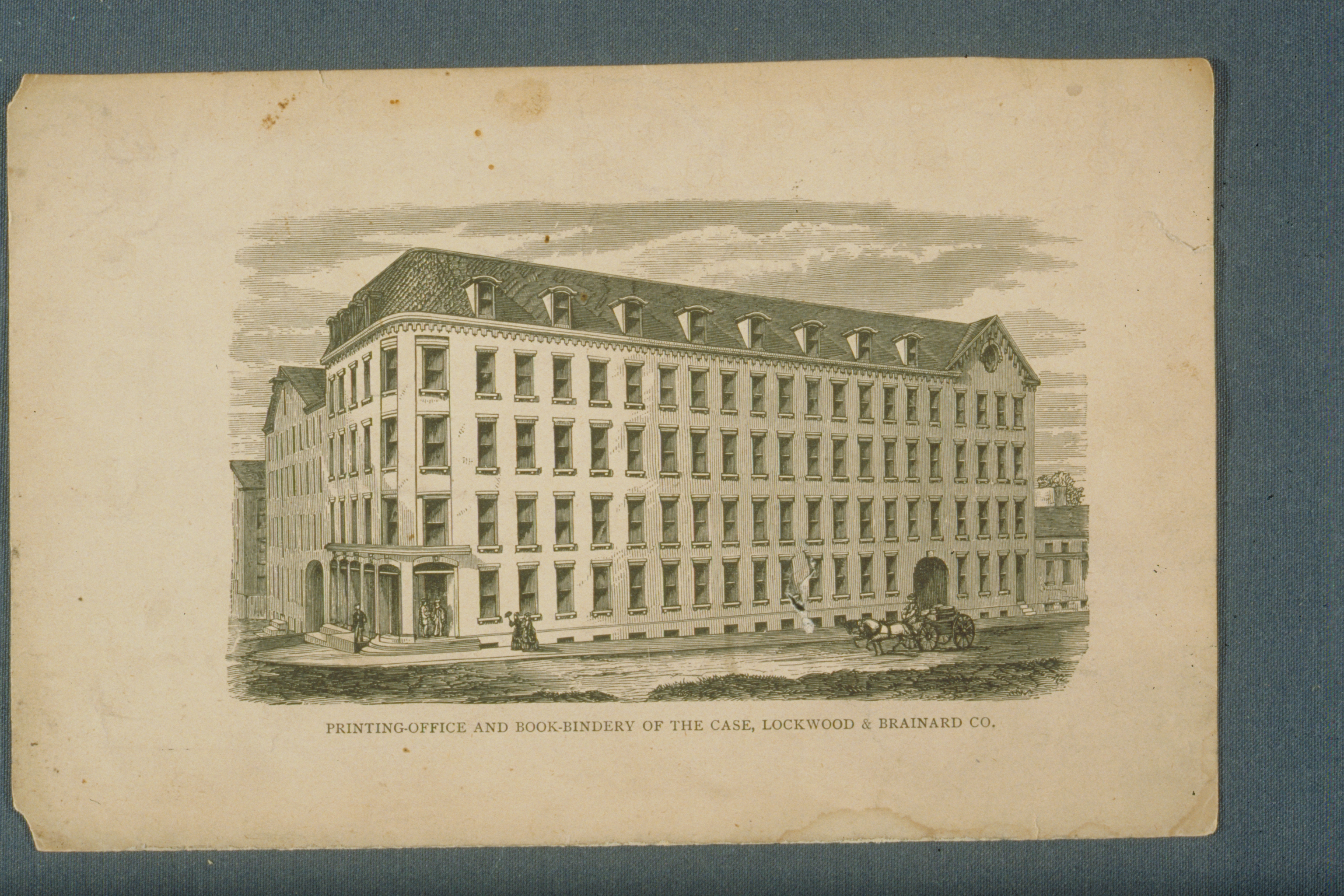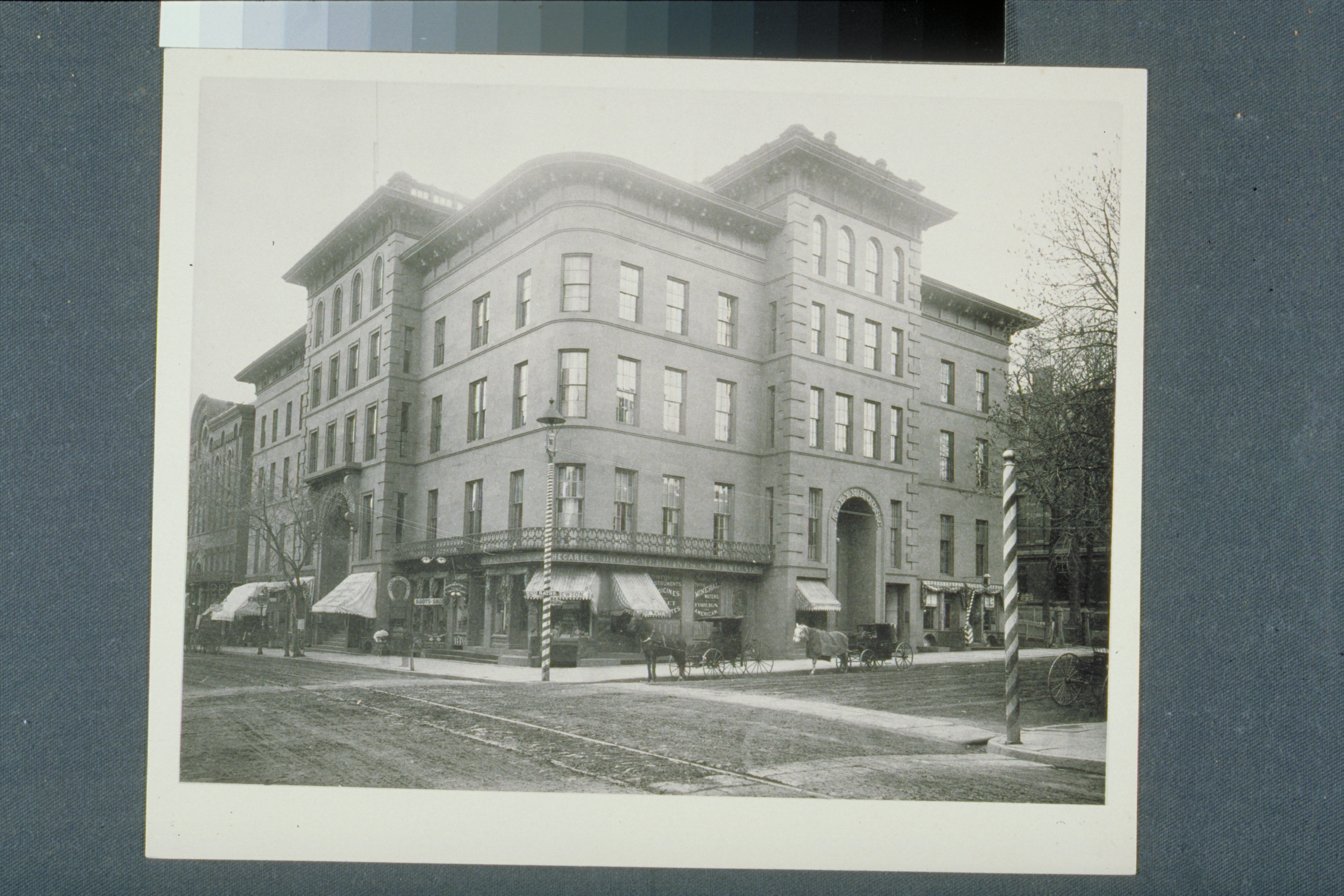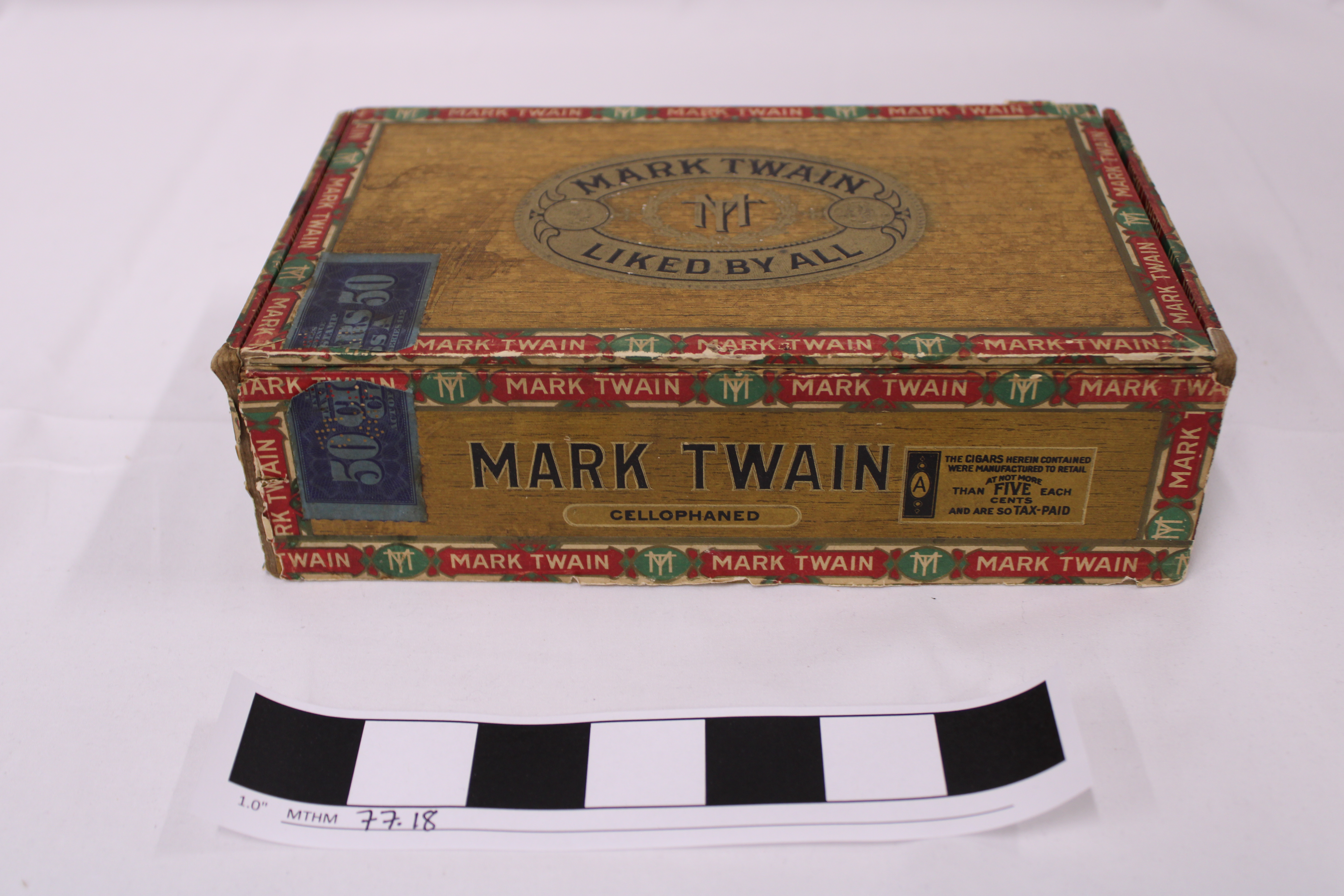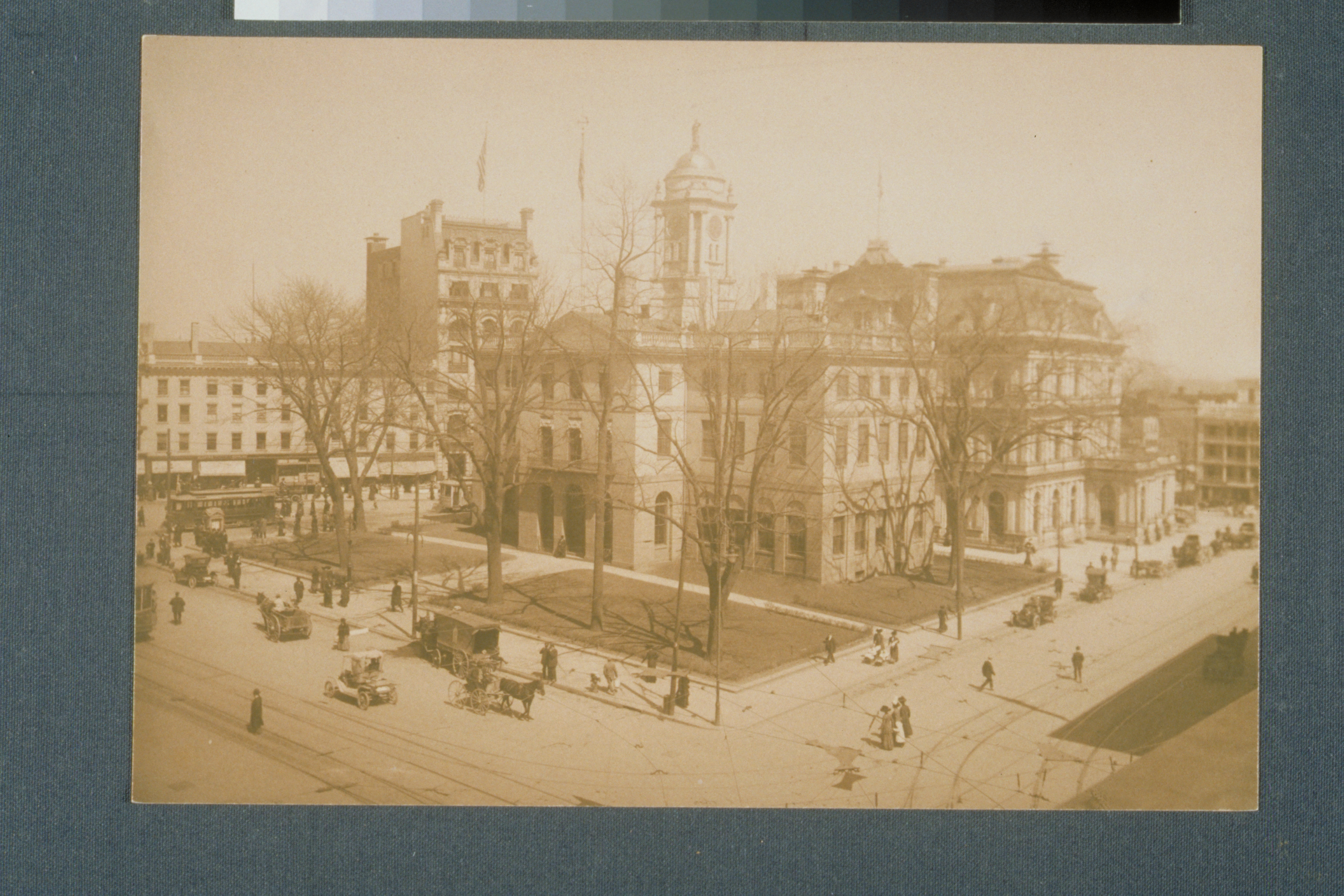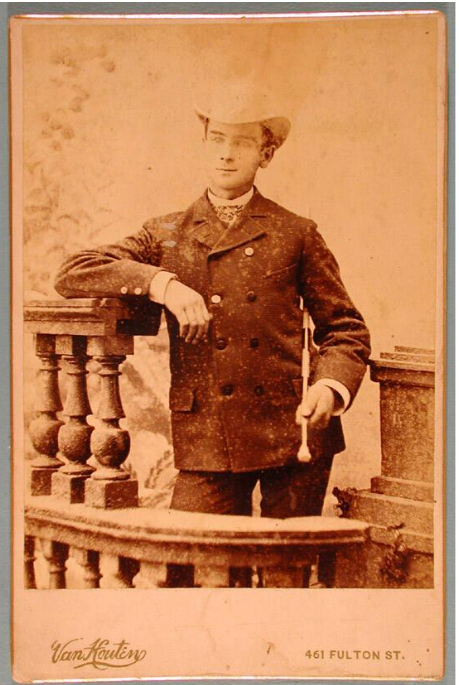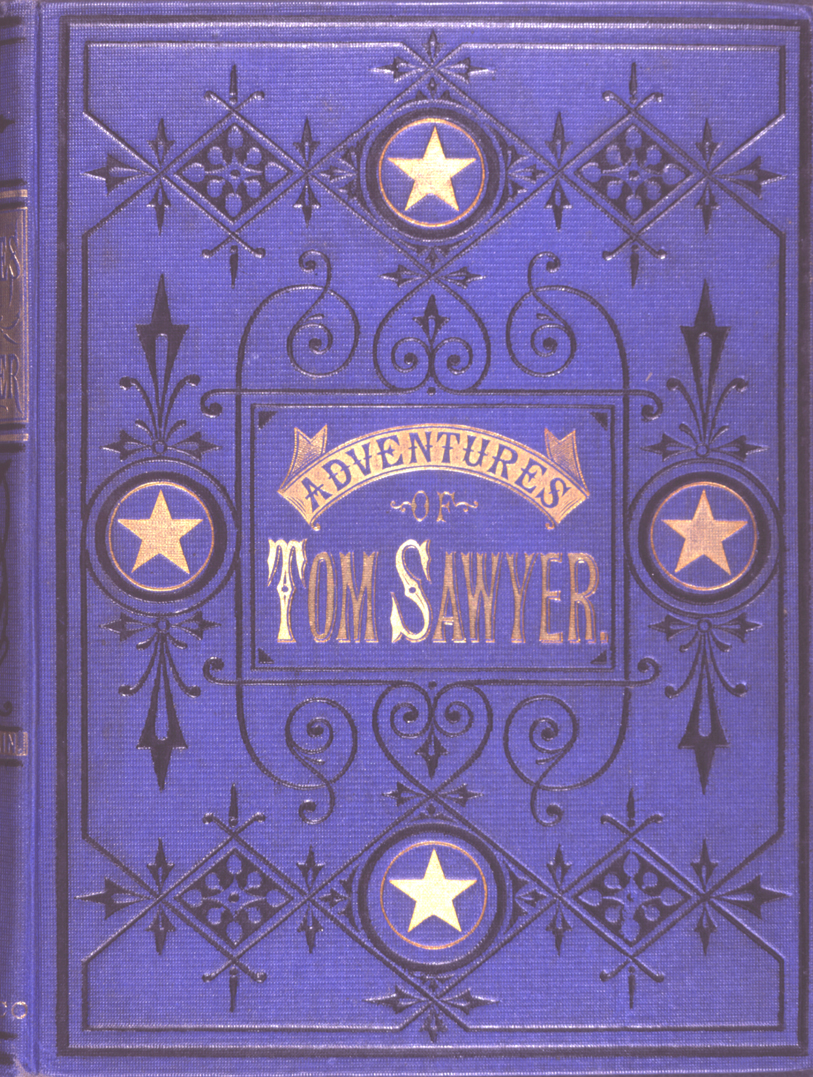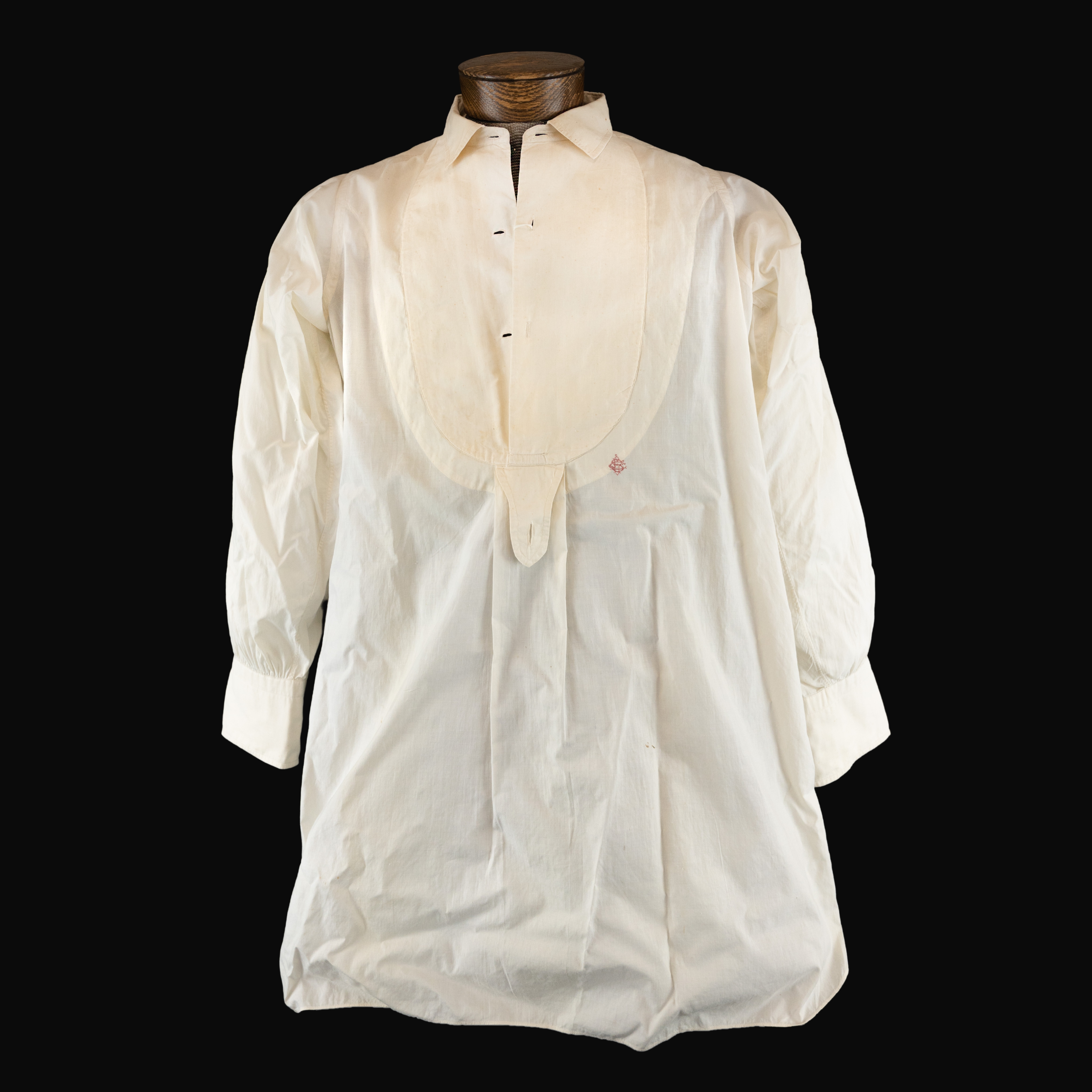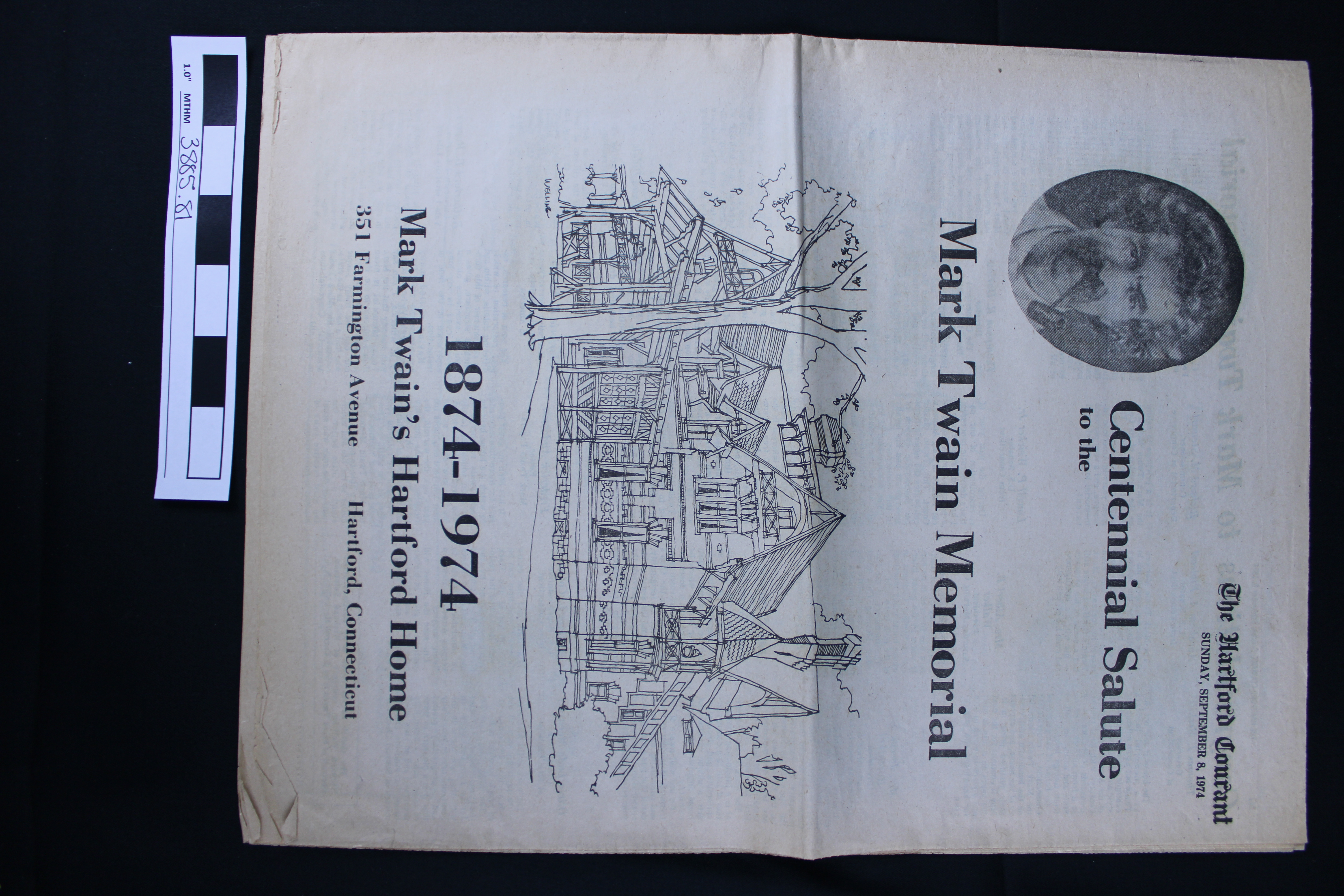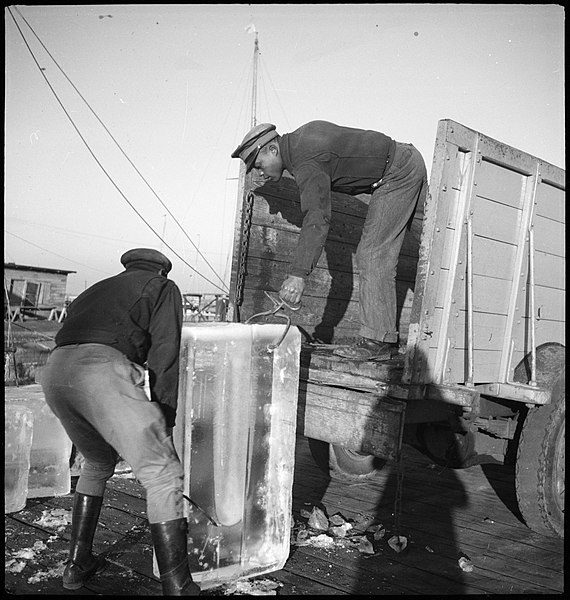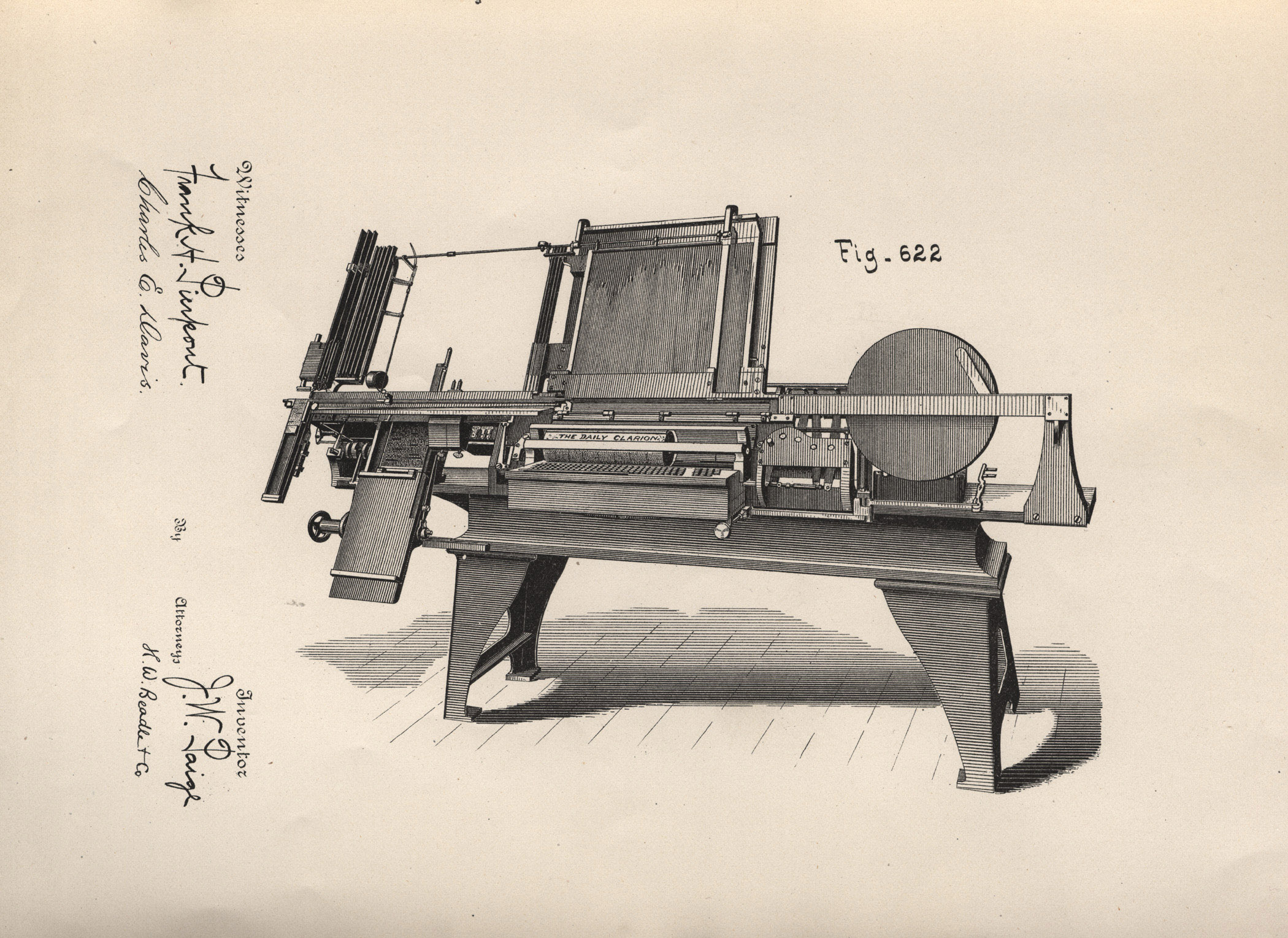American Publishing Company
The American Publishing Company , once located at 284 Asylum Street, was founded in Hartford on April 10, 1865, at the very end of the Civil War, only one day after Lee surrendered to Grant.
The company was established as a subscription-based publishing house, which meant that salesmen sold books door to door using a “salesmen’s prospectus;” a thin, condensed version of the actual book with sample chapters, illustrations, and bindings. After the salesmen presented a customer with the prospectus and made their pitch, they could read a chapter or two, ponder over the drawings, and ultimately decide if they wanted to place an order. If so, they were able to choose which binding and cover they wanted which ranged in price.
For Adventures of Huckleberry Finn you could get the cheapest green cloth cover for $2.75 or the most expensive half Morocco with marbled edges for $4.25. (As an aside the average daily wage in the late 1800s was $2.00). This method of sales allowed publishing companies to reach more people who did not necessarily have a bookstore nearby to purchase from.
Once the American Publishing Company designated itself subscription sales only, they got to work putting out three books in the first two years (one of which was the Bible). In 1867, Elisha Bliss joined the company and quickly transformed it into a busy, high functioning endeavor. He embraced new genres along with ones normally ignored by subscription publishers like humor. That led him to invite Clemens to write a humorous book about his travels aboard the Quaker City excursion, a 5–6-month journey to Europe and the Holy Lands where Clemens detailed sights, sounds, food, people to give a taste back home to Americans who could not afford to visit these exotic locales. The result was Innocents Abroad, Clemens’ best-selling book during his lifetime.
The success of his first book, The Innocents Abroad, is one reason the Clemenses moved to Hartford — to be closer to the publisher and the growing publishing industry in the city, to build ties with the business, and to keep an eye on the publisher. Clemens ambitions were to get his work into the homes of as many people as possible. Subscription publication ensured that it was cheaper and easier for anyone to read…Clemens once commented, “Anything but subscription publication is printing for private circulation.” Mark Twain’s books were heavily marketed by using this form of sales and publishing. Salesmen were sent to small towns all over the country to promote and pitch his newest title.
The publication of Innocents Abroad kicked off steady growth for the publishing company which continued through the mid 1880’s. According to scholar R. Kent Rasmussen, “During its first two decades, the company published about 80 books – a huge number for a subscription publisher – by writers including Josh Billings, Bret Harte, Charles Dudley Warner, and Dan De Quille.” Additionally, the company published all of Mark Twain’s major works through 1880: Roughing It (1872), The Gilded Age (1873), Sketches, New and Old (1875), The Adventures of Tom Sawyer (1876), and A Tramp Abroad (1880). Altogether over 300,000 books were sold and Mark Twain’s works were the company’s main feature.
Clemens eventually left American Publishing to form his own publishing house called Charles L. Webster & Co, named for Clemens’ niece’s husband, published Adventures of Huckleberry Finn (1885) and General Grant’s famous memoirs (1885) among others before shutting down in 1894. By creating his own publishing house Clemens earned dual income as author and publisher, taking advantage of multiple revenue streams.
Clemens also accused the American Publishing Company of cheating him out of thousands of dollars from inaccurate book sale reports, and Clemens’ brother Orion convinced him Bliss was dishonest. Despite this accusation and the tense relationship that followed, Clemens returned to American Publishing to put out Puddn’head Wilson (1894) and Following the Equator (1897). At this point in time, the subscription market was failing, and they were holding on mainly due to selling uniform editions of Mark Twain’s back titles. In 1903, the company was finally sold to Harper’s.

